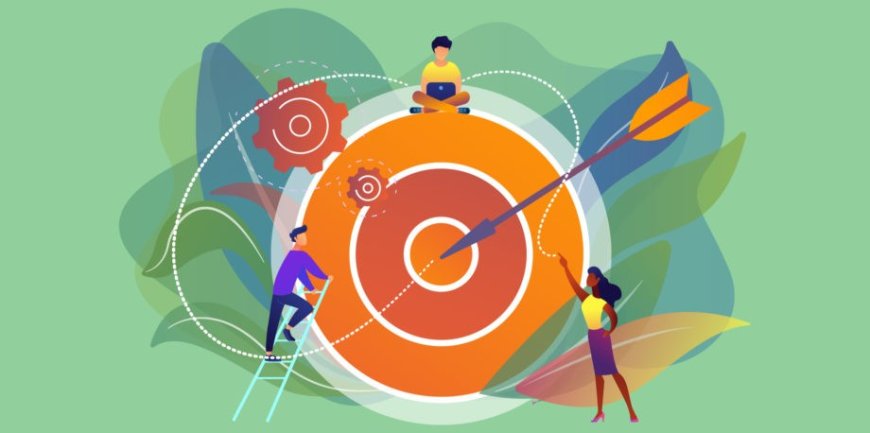What is systems thinking and how does it help us achieve the SDGs?
we don't even know. This is why it is important to understand what systems thinking is and how it helps us achieve the Sustainable

Like all beings on this planet, we live in an intensely interconnected environment, where each action has consequences and responsibilities that trigger others. The actions we take today definitely influence our tomorrow and most likely the tomorrow of beings we don't even know. This is why it is important to understand what systems thinking is and how it helps us achieve the Sustainable Development Goals (SDGs).
Have you ever thought about the series of coincidences and actions that got you to where you are today? Give yourself a few minutes to reflect. Ask yourself questions like: what if I had not met that person? What if that had not interested me at that time in my life? If I had decided another option, would my life be the same? The truth is that without all those coincidences and interconnected actions, nothing would be the same, right?
Let's look at an example: imagine that you buy a shirt online. For you this means nothing more than paying for it and waiting for it to be delivered; However, for that shirt to reach you, it must go through several processes: from when the cotton is harvested or manufactured, it is transformed into thread and then into fabric to become a shirt, to the transportation process that involves the people who They must drive the truck to take it to your house.
Can you count the number of hands that shirt has gone through? The simple answer is no, but with a small example we can see how the action of your small purchase influenced the lives of many people, who thanks to your shirt have a job that, probably, will earn them enough to live.
Thus we see how all the decisions and actions we take affect us and many more people. This is called a systemic concept and it refers to the relationships, patterns and connections that exist between different elements. Understanding that connections are a basic pattern of the order of all beings is what we call systems thinking.
Indeed, all living beings on this Earth are interconnected. A great example of this is the food chain, but like this one, there are also production, communication and many others that perhaps until now you had never thought of as systems.
We absolutely all live within systems, and when they change the need for adaptation arises; however, our human activities create imbalances within natural ecosystems so rapidly that species are unfortunately not adapting at the same speed.
This imbalance is causing a series of effects that we perceive with the naked eye: climate change, the natural phenomena that it brings, the loss of biodiversity and ocean acidification, among others.
Humans are creating something called mass extinction and as intelligent beings it is our responsibility to avoid and reverse it. But what does this have to do with systems thinking?
Must Read: Error, failure and the power of still
Well, if we understand that we are all by nature interrelated and that our actions affect countless beings, we can imagine that we have a colossal responsibility with ourselves, others and the environment, as the United Nations Organization has pointed out when raise the SDGs.
Learning to think systematically is crucial for an education for sustainability and to direct our actions towards the fulfillment of the SDGs, since thinking in systems requires an understanding in terms of relationships, connections and contexts. Systems in general can be characterized by having the following:
- Energy flows: All organisms are open systems, which means that they need energy flow to sustain life. A great example of that is the food chain.
- Development: development and learning, both at the level of the individual and that of the species, involves the interaction of creativity and mutual adaptation, in which organisms and the environment co-evolve.
- Dynamic balance: all ecological cycles act as feedback for the species; therefore, they are reorganized, adapt or evolve to maintain the balance of the system.
For its part, the Center for Eco literacy has identified competencies that young people need to adopt in order for them to achieve systemic thinking and learn to live in sustainable communities.
Cognitive habilyties
- Understand problems and situations from a systemic perspective.
- Understand the fundamental ecological principles.
- Critical thinking, creative problem solving, applying knowledge to new and different situations.
- Evaluate the ethical impacts and effects of technologies and human actions.
- See long-term consequences before making decisions.
Emotional skills
- Feel concern, empathy, and respect for all living beings on Earth.
- See and appreciate multiple perspectives: work with and value others with different backgrounds, motivations and intentions.
- Commitment to equity, justice, inclusion and respect for all people.
Activities
- Create and use tools, objects and procedures required by sustainable communities.
- Convert convictions into practical and effective actions by applying ecological knowledge and practicing ecological design.
- Evaluate and adjust the uses of energy resources.
Connections
- Experience illusion and admiration for nature
- Respect the Earth and all its living beings.
- Feel a strong connection and deep appreciation for the places where they are.
- Feel closeness and kinship with nature.
Try to implement these skills in your students and you will see the evolution of their attitudes, as well as the change in their ways of perceiving environments and contexts.
